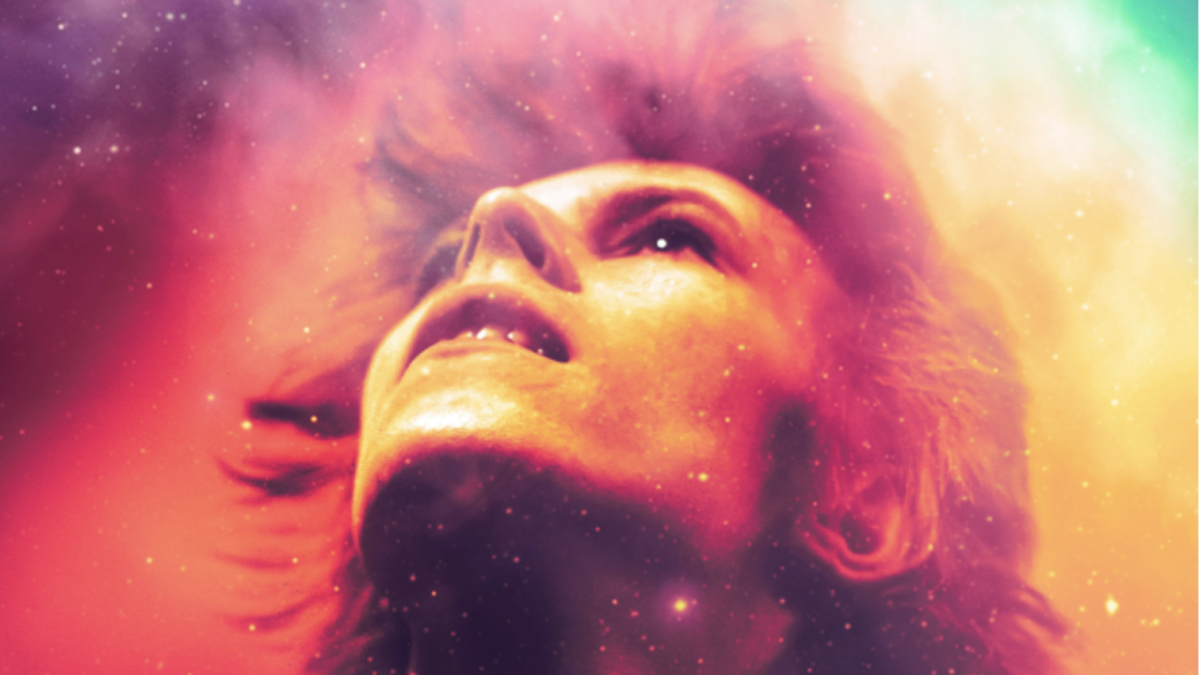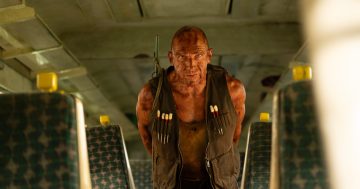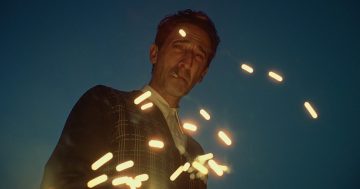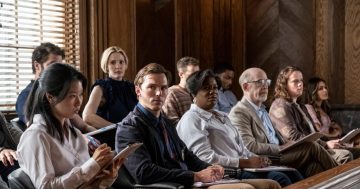
Moonage Daydream is a mesmerising montage for Bowie true believers. Photo: Supplied.
It’s hard to know at what point a filmmaker’s obsession with an artist stops becoming a document of that person’s life and tips over into complete immersion.
Brett Morgen has made such a film about David Bowie; to my way of thinking the most important rock artist since Elvis Presley.
The film, Moonage Daydream, starts at an important place because of all the Bowie incarnations during the 1970s perhaps Ziggy Stardust was and remains the most influential.
It’s simultaneously important the first part of this documentary contains a serious amount of D.A. Pennebaker’s film about that last concert Bowie performed as Ziggy Stardust and The Spiders from Mars in London.
That early movie was actually made in 1973 but for a variety of reasons didn’t see the light of day until 1979. Pennebaker was one of the great documentarians of his time, having made films about Dylan, Hendrix, Little Richard and so much more.
Pennebaker’s Bowie film remains a classic. We see Bowie at the early height of his career, completely redefining what it is to be a rock star – bisexual, androgynous, and the writer of some of the best music of that decade and having fun with it.
But what also emerges is how the man thought about art, music and the struggles with defining oneself in that space.
He revisited these themes his entire life. Chaos and fragmentation and transience were his metier. He was never able to stop rethinking what his message was about and what it meant to the people for whom he designed that message.
These moments, particularly around the music, were explored much better in the late 1970s on his three Berlin albums with Brian Eno and Tony Visconto (the latter of whom was the musical director on this film), where they tore the studio apart and started from scratch. These are the best works Bowie did.
Morgen’s Moonage Daydream is thoroughly original from the beginning. He builds montages around Bowie’s character and draws on content now available.
And it’s rich. It includes Bowie’s art – he was a shy but prodigious painter. There are also clips from movies referenced in his work, and many musings from the singer on his intellectual journey.
Morgen has also made two very influential documentaries – one about the Rolling Stones, the other about Nirvana. He met Bowie about 2007 but the idea for the film he was pitching didn’t click.
After Bowie died in 2016, Morgen was given full access to the artist’s work, everything from rock concerts, interpretative dance to his celebrated theatrical version of the Elephant Man.
His first marriage is never mentioned but as an artist who struggled with his craft, there were some brief mentions of his second wife Iman who gave him immense joy before his death from cancer.
Two ideas have emerged from my family. Returning home from the movie, my bride Virginia said this was a film that needed to be seen every three to four years, like reading Julia Baird’s incredible meditation on life, Phosphorescence. Today my eldest son, who is 32, and doesn’t know this music at all, asked if it would translate to another generation?
I don’t know, maybe you should go and have a look for yourselves – 4.5/5.
Moonage Daydream is showing at the Dendy and Palace Electric cinemas in Canberra.
Marcus Kelson is a Canberra film critic and writer.
Original Article published by Marcus Kelson on Riotact.











